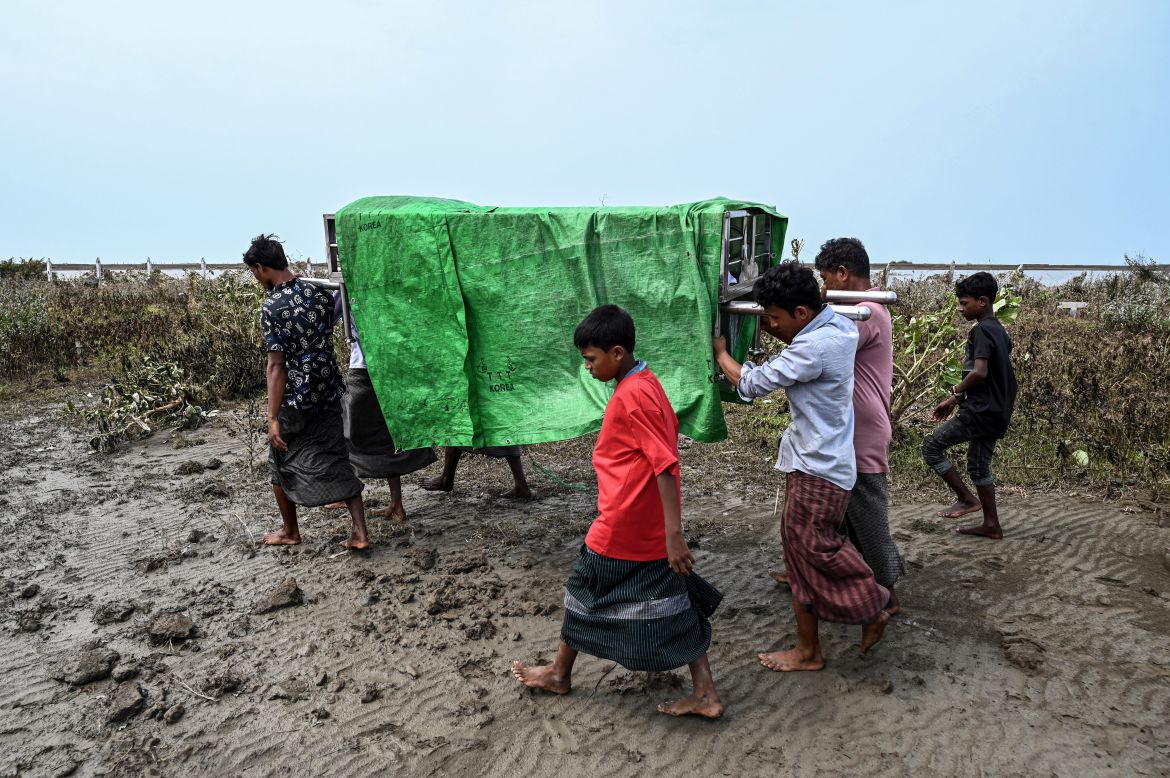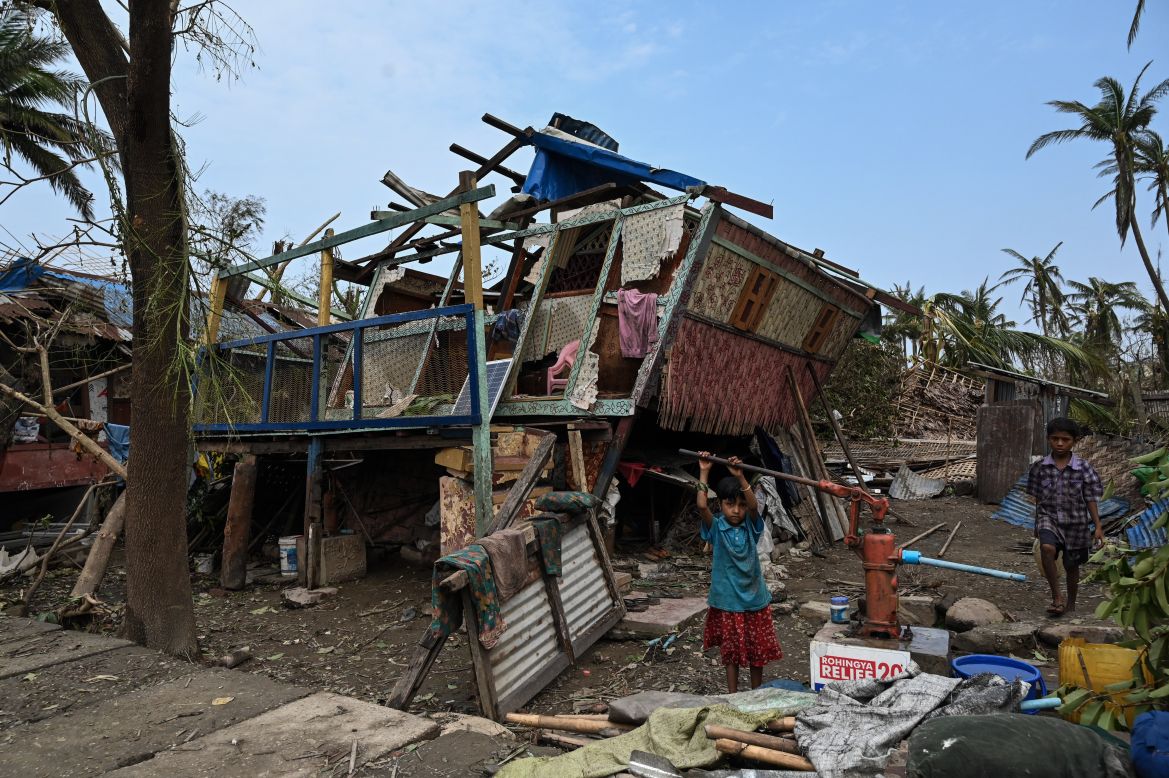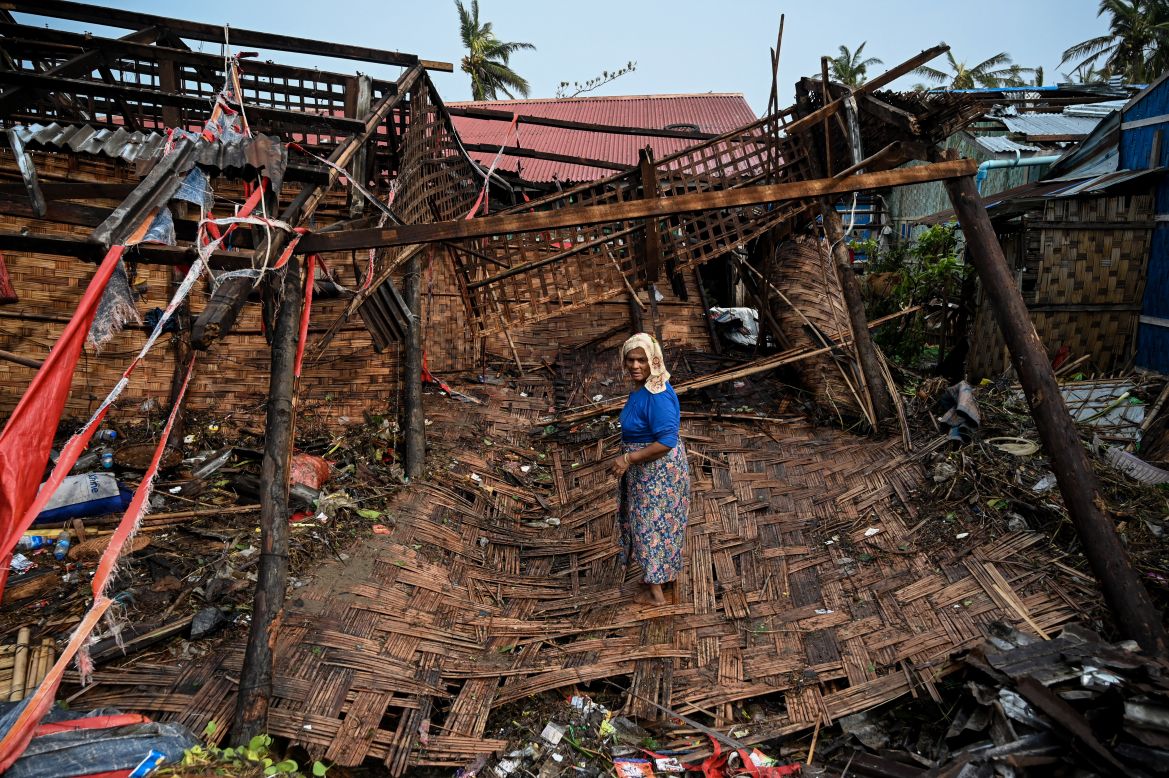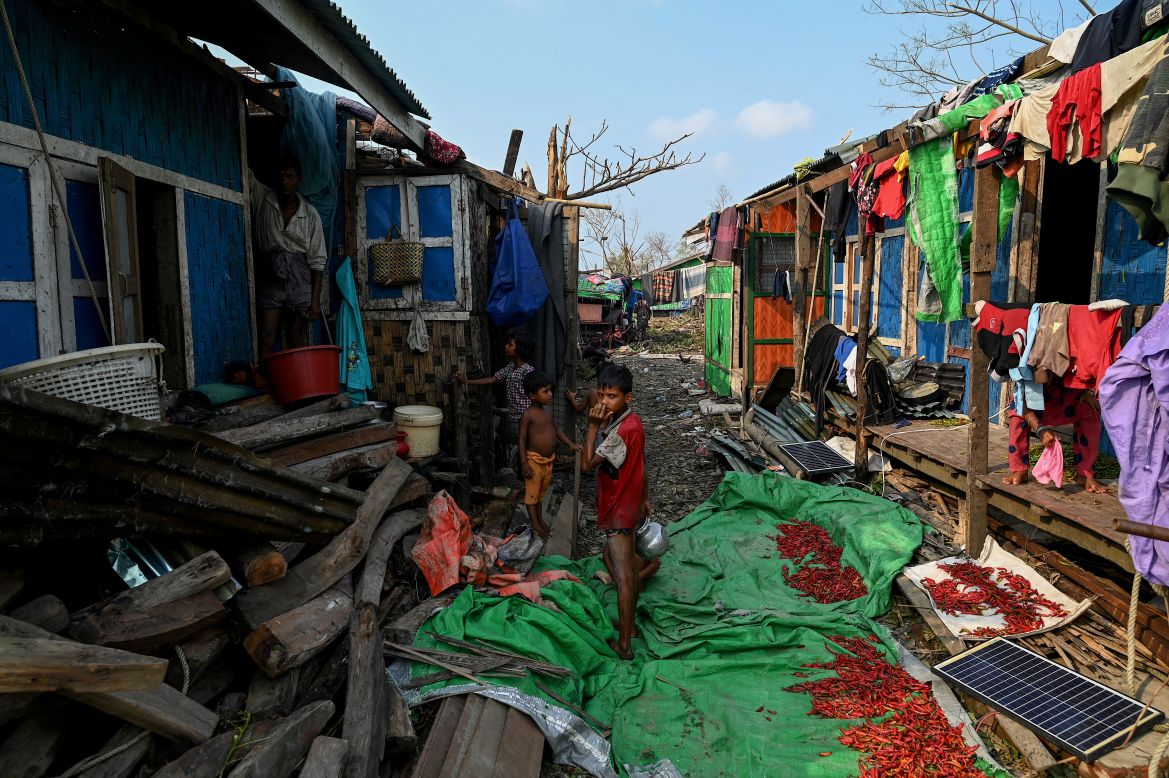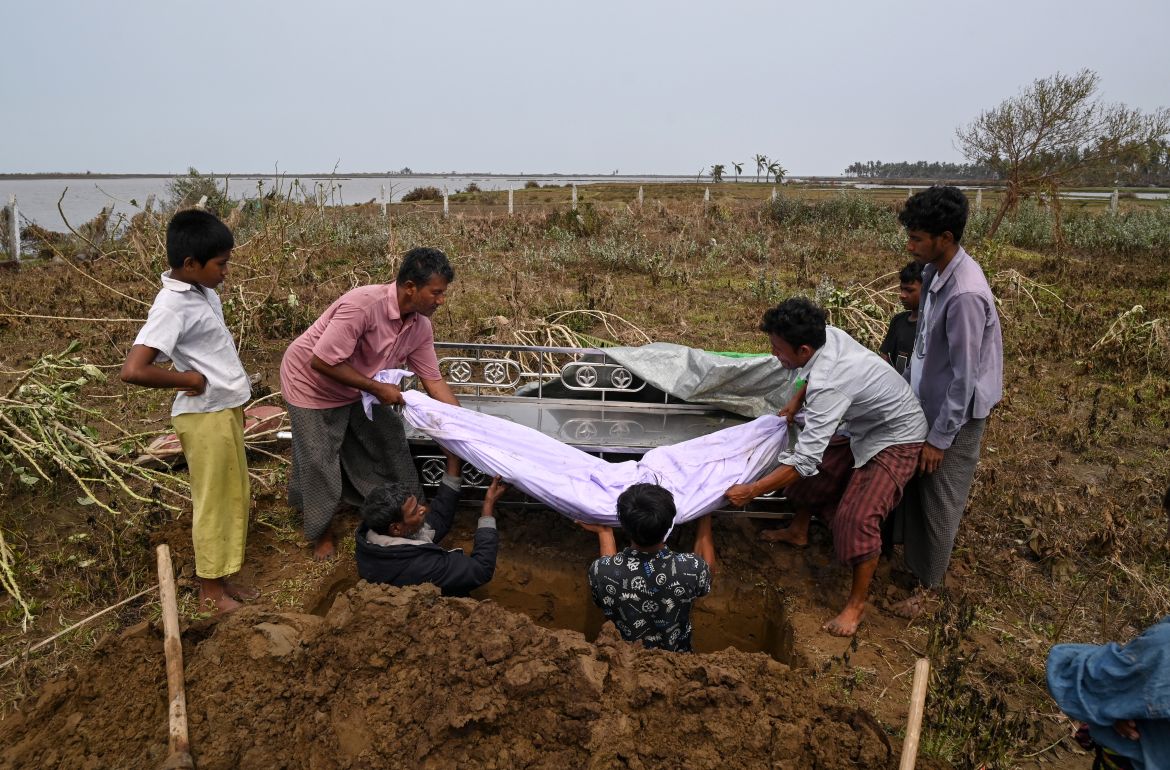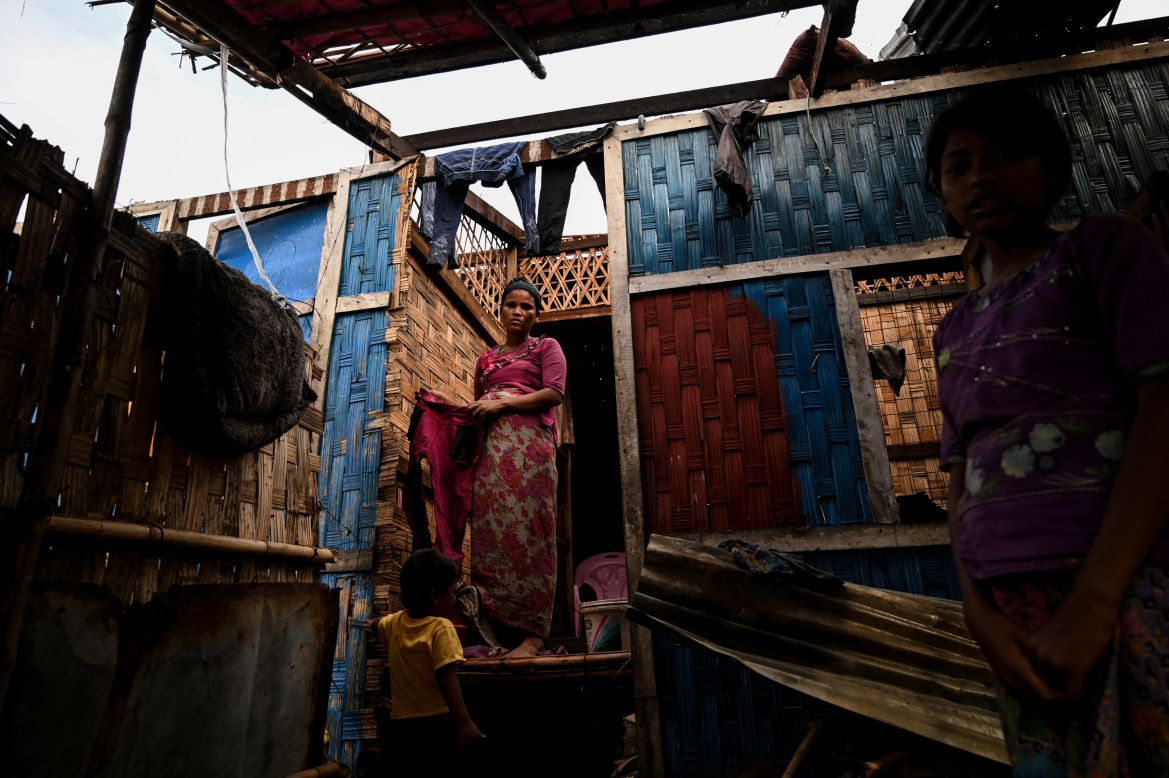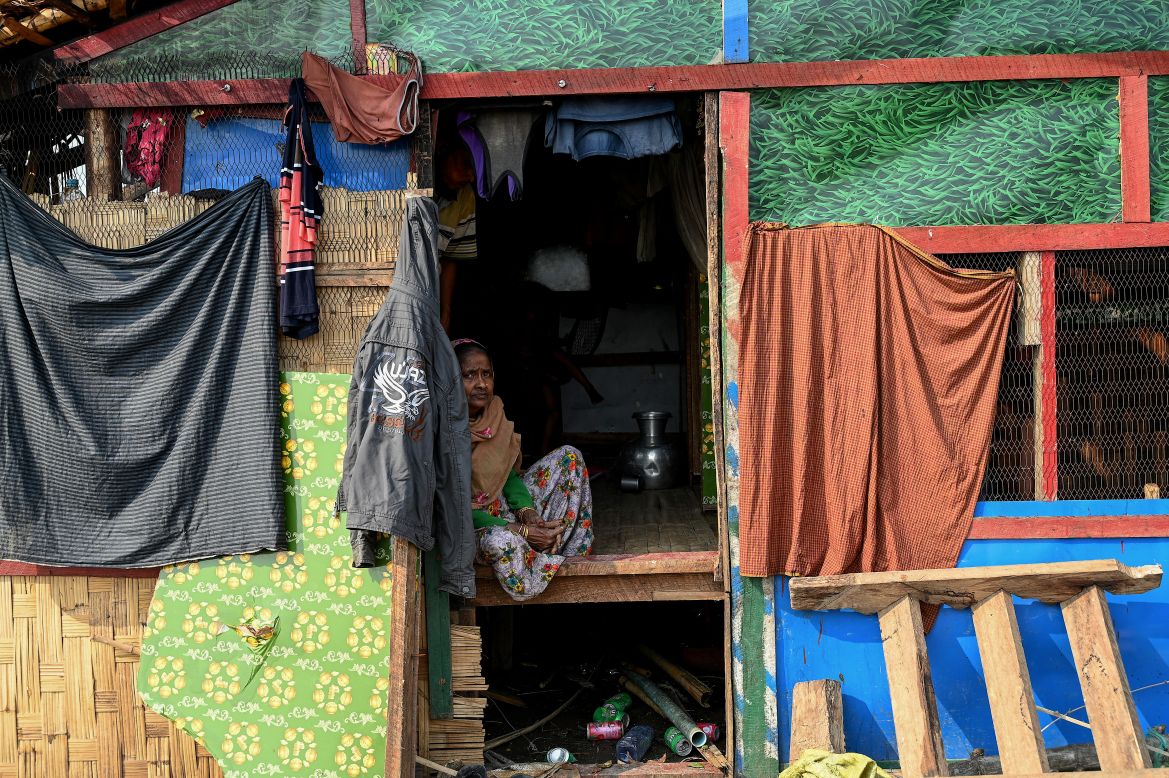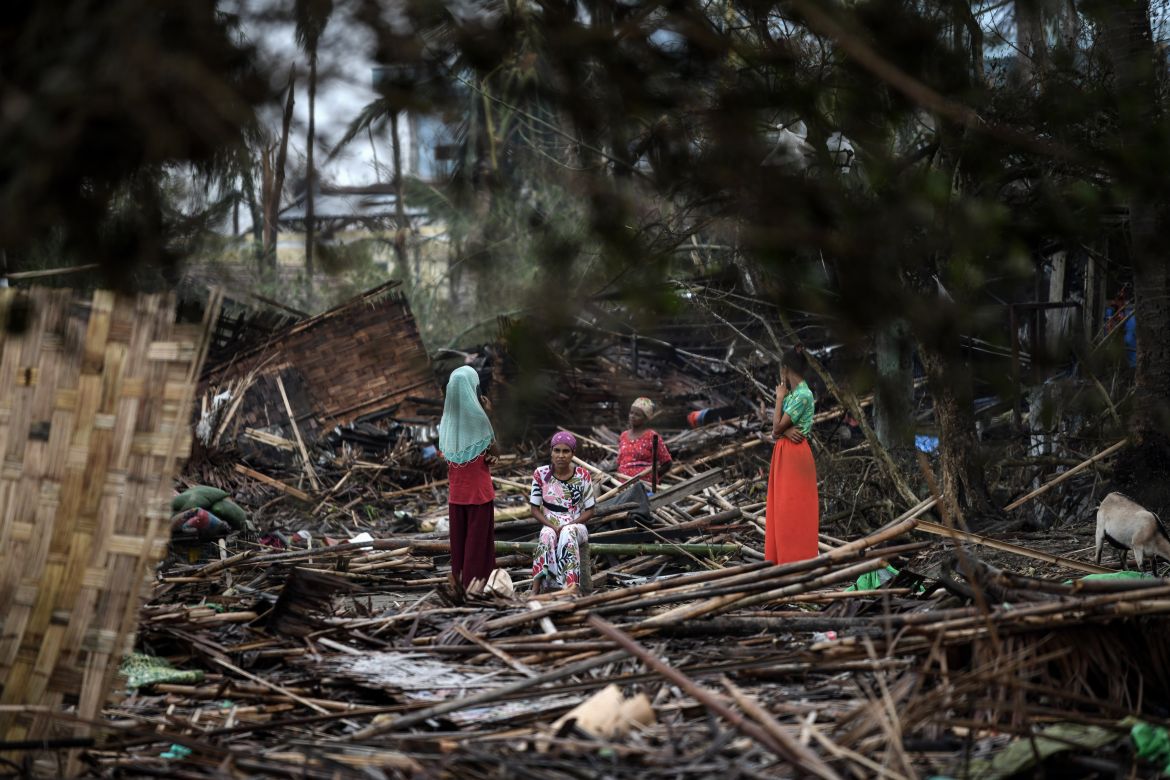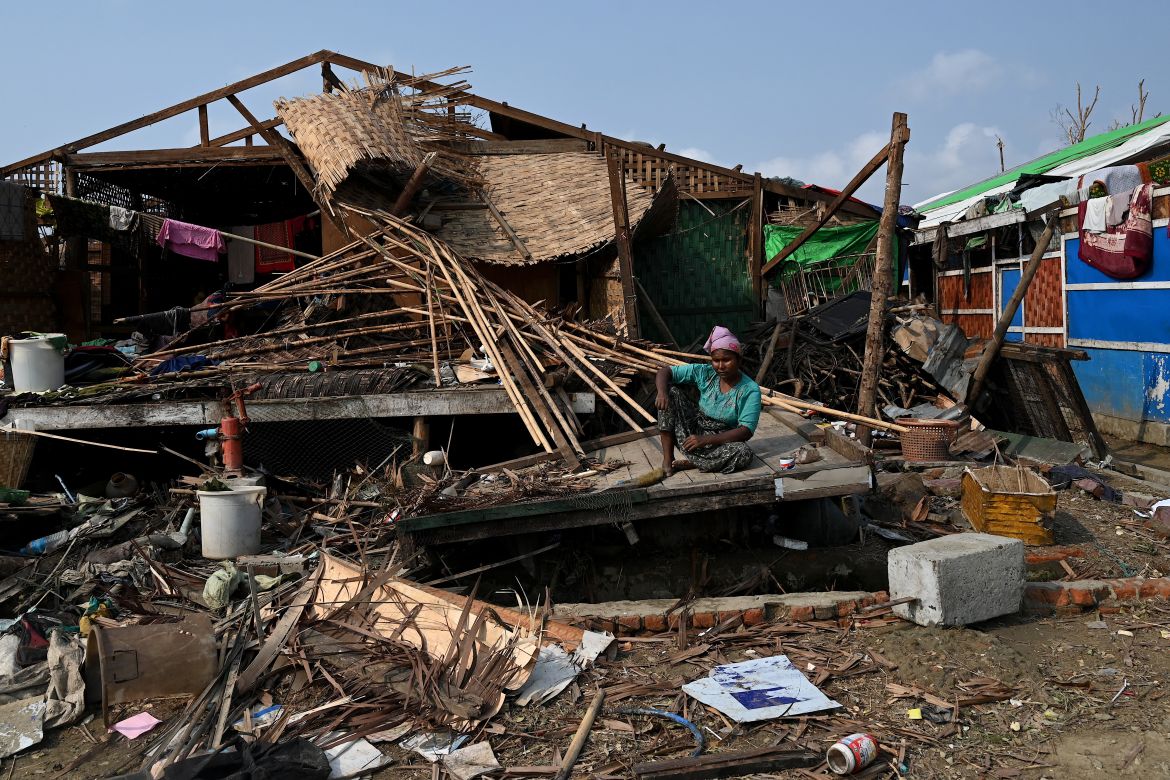In Pictures
Photos: Rohingya in Myanmar count the dead after Cyclone Mocha
Mocha was the most powerful cyclone to hit the area in more than a decade.
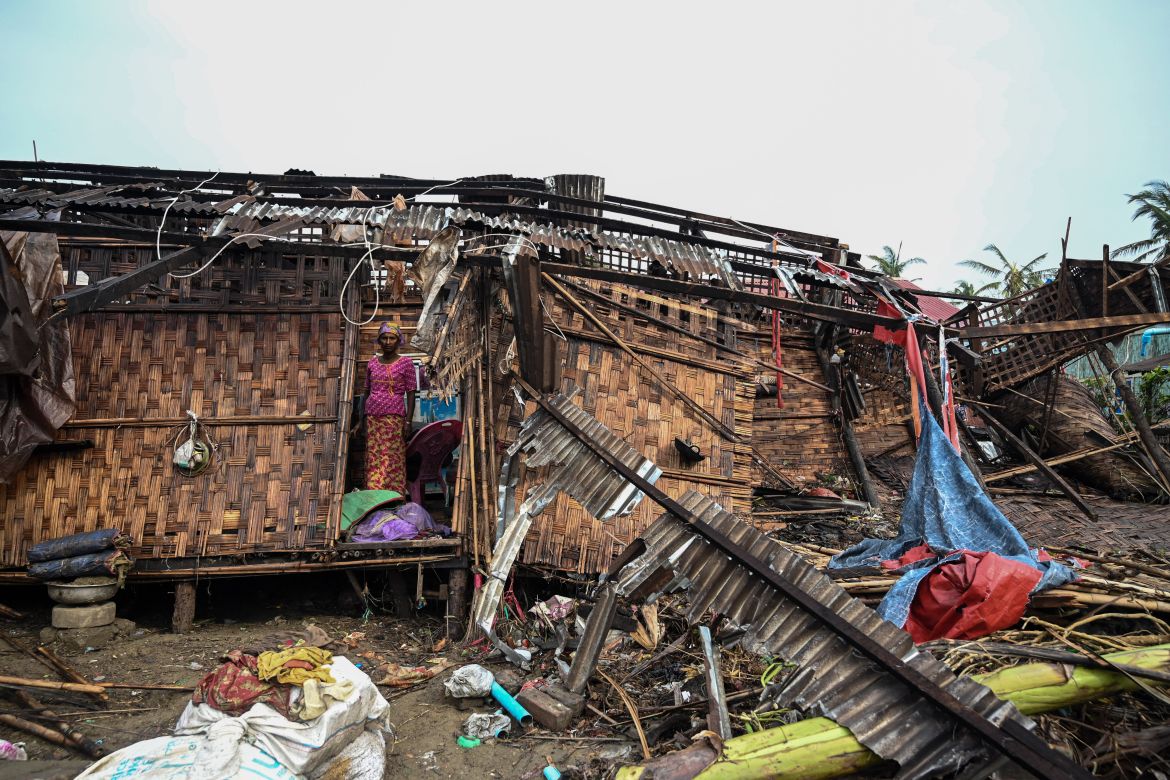
Rohingya people in cyclone-hit Myanmar buried loved ones outside shattered villages and searched for the missing, expecting little help from a government that denies their identity.
Cyclone Mocha snapped bridges, downed power lines, and ruptured close-lying huts in displacement camps and villages across Rakhine state, leaving tens of thousands of the persecuted minority even more on the edge.
The Arakan Rohingya National Alliance, a human rights coalition, said in a statement more than 400 people were killed and the death toll is expected to rise with hundreds missing.
Many people picked through piles of debris that were once their homes or cleared fallen trees from village paths. Others looked for family members not seen since the cyclone made landfall on Sunday. It was the most powerful storm to hit the region in a decade.
“We were trying to run but the water was very high and dragged us down,” said Sar Hla Ma Kha, 40, from Basara village. “The water was around our chest. My daughter and her son were lost while we were running.”
Aa Bul Hu Son, 66, buried his daughter, the latest member of his family to have been taken by the storm.
“I just found her dead body in the lake in the village and buried her right away. I can’t find any words to express my loss,” he said.
“Nine out of my 14 family members were killed,” he said next to the hastily dug grave. “While we were thinking of moving, the waves came immediately and took us.”
Contact was slowly being re-established with Sittwe, a city of about 150,000 people, with roads being cleared and the internet connection re-established.
Images broadcast by state media showed troops unloading aid at the airport, and state media reported military chief Min Aung Hlaing visited to view the damage.
But few Rohingya were optimistic about receiving help fast. Widely viewed as interlopers from Bangladesh, Rohingya are denied citizenship and access to healthcare, and require permission to travel outside of their townships.
A military crackdown in Myanmar in 2017 sent hundreds of thousands of Rohingya fleeing into neighbouring Bangladesh with harrowing stories of murder, rape and arson.
